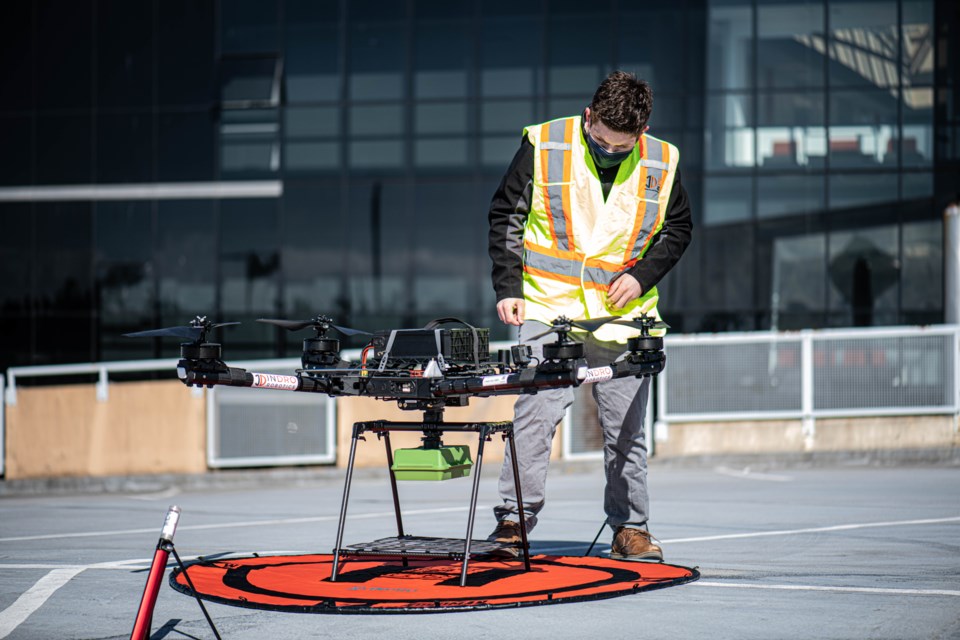It was a Canada first on Thursday when two drones flew above the University of British Columbia supported only by their rotors and a 5G network.
Fitted with a 5G signal transmitter-receiver, the two unmanned aerial vehicles were put through their paces by the Vancouver research and development company InDro Robotics using UBC’s 5G network. The network was installed by Rogers as part of a multi-year collaboration to pursue 5G research.
During the flight the drones performed precise flight manoeuvres relying on the 5G network alone, without additional navigation from ground operators, and completed tasks such as picking up and dropping off a box containing medical first-aid supplies.
A press release from the university following the flight explains that drones usually communicate using radio frequencies but a 5G network can significantly enhance their capabilities.
“The drones rode the 5G network without a hitch, flying smoothly and communicating with ground operators and remote viewers with full control and near zero latency, or delay,” said Philip Reece, InDro Robotics president and CEO.
The sheer speed of the 5G network gives the drones the ability to share data and video live across 5G to multiple users. Reece adds that this ability opens up many new uses for the technology.
“Engineers in their office can inspect critical infrastructure in the field. First responders can share images and the ability to control the drone or camera from an off-site command centre,” he said. “And as the next step, control of multiple drones at the same time over the 5G system will expand the use cases again.”
Dr. Walter Mérida is a professor in the faculty of applied science who leads MéridaLabs, the UBC research group working with Rogers and InDro Robotics on the UAV project. He too sang the praises of the test adding that 5G networks can be applied to have significant societal benefit.
“In the near future, you can imagine 5G drones being routinely used to monitor wildfires or assist in delivering medical supplies to remote locations,” said Mérida. “They can be enlisted to provide security services and deployed during times of crisis and natural disasters. 5G enables us to explore many of the challenges and opportunities that will emerge as transportation and civil infrastructures become smart and interconnected.”
In addition to the UAV project, the UBC-Rogers partnership is also advancing work on new 5G applications including autonomous vehicles and traffic monitoring. Other research interests include machine learning, artificial intelligence and other technologies that can be used in robotics, medicine and healthcare.



